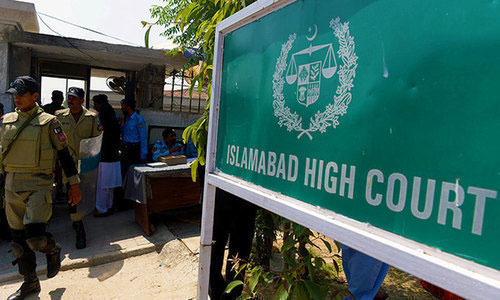The Islamabad High Court on Monday ordered Prime Minister Shehbaz Sharif to ensure that the missing persons — whose cases are being heard in the IHC — were produced in the next hearing on September 9, warning that the failure to do so would require him to appear in person on the said date and give an explanation.
IHC Chief Justice Athar Minallah issued the conditional summon to the PM as he heard the missing persons’ case related to the disappearance of journalist Mudassar Mahmood Naro and five others.
The court had on May 29 issued an order wherein it had asked the federal government to serve notices on former president retired Gen Pervez Musharraf and all successive chief executives, including Imran Khan and incumbent PM Shehbaz, for following an “undeclared tacit approval of the policy regarding enforced disappearances”.
In the last hearing on June 17, Justice Minallah had also warned that the court could summon the chief executive of the country for an explanation over the government’s failure to implement the court orders. Resuming the hearing of the case on Monday, Justice Minallah asked Deputy Attorney General (DAG) Khawaja Imtiaz reasons for the government failing to comply with the court order regarding the recovery of missing persons. “It is noted that the existence of the grave phenomenon of enforced disappearances and impunity against it has never been denied but the state, through the federal government, has so far failed to dispel the impression that it is an undeclared policy,” the IHC CJ noted.
He said the prime minister should ensure that the missing citizens named in the petitions were produced before the court on the next hearing, adding that in case of a failure, the premier should appear in person to justify “the failure of the state to fulfill its constitutional obligations”. The court also remarked that PM Shehbaz was expected to inform the court regarding actions taken against public functionaries who had been or continue to be involved “in the most inhuman and heinous phenomenon of enforced disappearances”.










